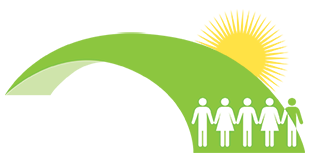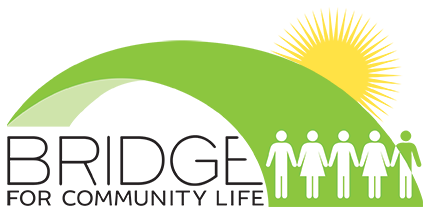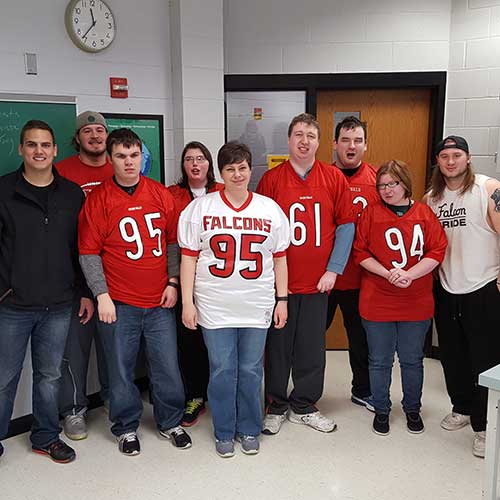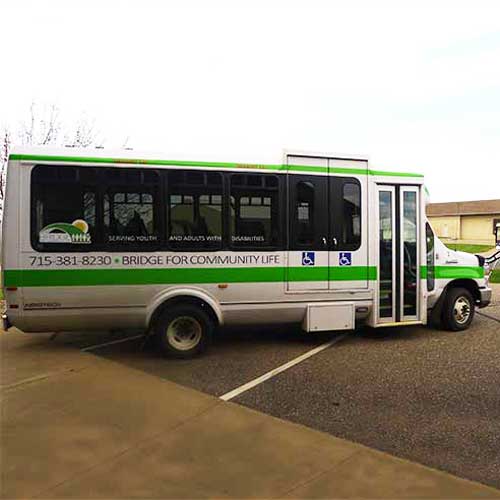
What We Do Two
Our programs ensure individuals with disabilities receive comprehensive, efficient, and integrated community and employment choices with services that maximize individual independence.
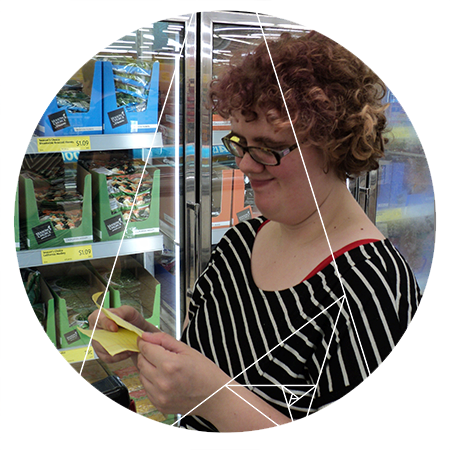
PERSONAL, SOCIAL, AND COMMUNITY SUPPORT SERVICES (PSC)
PSC services assist individuals in developing the basic self-care, advanced daily living, and educational skills required to participate in their communities as independently as possible. Individuals may participate in a variety of experiences in order to develop these skills. Involvement in the community through interaction and participation is a priority. Community outings and classroom activities are both used to teach skills needed for community integration and independence.
ORGANIZATIONAL EMPLOYMENT SERVICES (OES)
The Organizational Employment Services (OES) program provides an individual with paid work experiences. These experiences help people develop the skills needed to work in a community setting and offer an opportunity to earn a paycheck for work completed. Individuals also participate in training designed to develop the “soft skills” needed to find and keep a job. These include interviewing, getting along with others, listening and following directions, and keeping or improving educational skills.
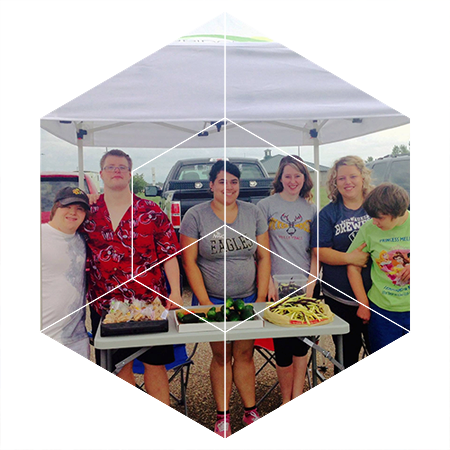
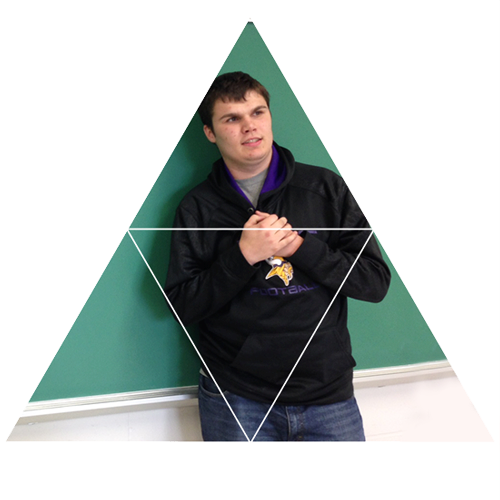
EMPLOYEE DEVELOPMENT SERVICES (EDS)
The main emphasis of this program is to evaluate an individual’s current vocational skills and to design an individualized plan to develop or reestablish prevocational, vocational and associated skills. At the conclusion of the program, a written document is compiled that lists the recommendations for vocational pursuits based on the individuals needs, strengths, skills and desires.
EMPLOYMENT SKILLS TRAINING SERVICES (EST)
The purpose of this program is to provide individuals with the opportunity to be trained and acquire the skills associated with one particular job of their choosing. The programs currently offered include: Janitorial; Clerical; Factory Production; Merchandising, and Industrial Sewing. Wages are earned for work completed during training and soft skills are addressed. The program is time limited based on the needs of the individual and the sponsoring agency.
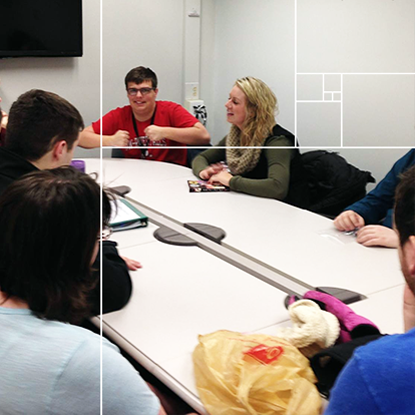
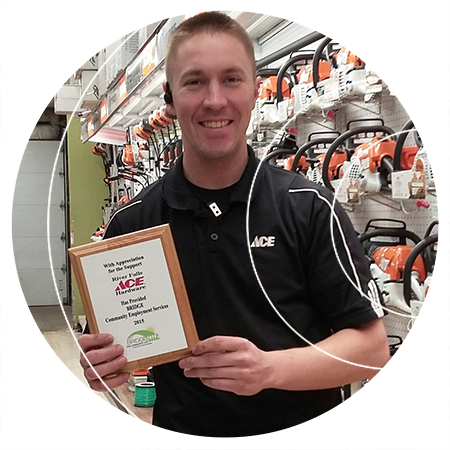
COMMUNITY EMPLOYMENT SERVICES (CES)
CES provides individuals the opportunity to choose, obtain, and retain employment in the community with varying degrees of support. We believe that, given the right level of support, every person who receives services at ROOC has the potential to work in the community if they desire. We offer placement assistance, job coaching, follow-up services and any other support that may be needed for an individual to reach the maximum potential.
RESPITE CARE SERVICES
Respite is a support available to families and caregivers of persons with developmental disabilities (DD) or children serious emotional disturbance. Respite care services are designed to offer a break from care giving responsibilities. A respite break can mean time for the caregiver to leave the home while a respite provider stays in your home to care for the individual, and extended time away (weekend or several days) away where the respite provider stays in the family home, or time for the respite care provider to take the individual out into the community so you can have a break in your own home. ROOC does not provide out-of-home overnight care.
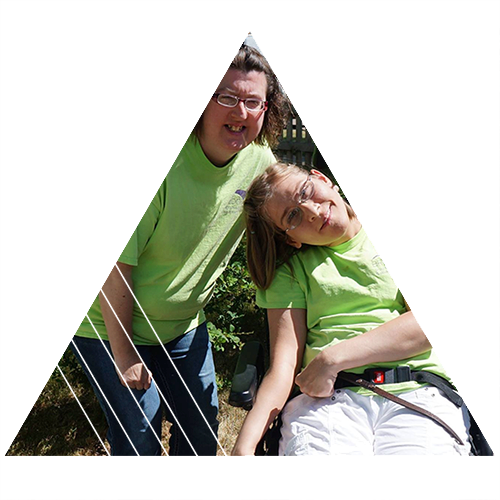
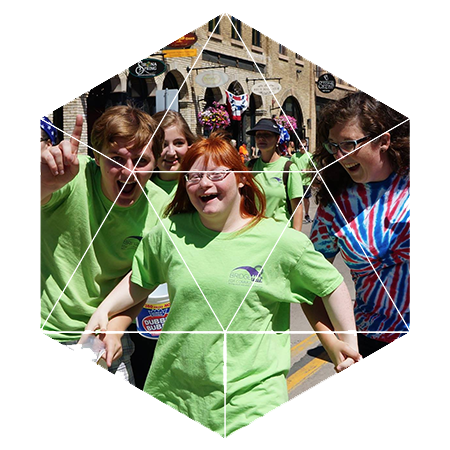
COMMUNITY LIVING SUPPORTS (CLS)
Community Living Supports (CLS) are activities provided by paid staff that help adults with either serious mental illness or developmental disabilities live independently and participate actively in the community. Community Living Supports may also help families who have children with special needs (such as developmental disabilities or serious emotional disturbance).
GIVING BACK
BRIDGE places a large emphasis on giving back to the community. Daily trips to local volunteer sites encourage participants to stay engaged in their surrounding communities and build friendships with their peers.
